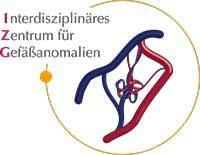Thyroid Cancer — Embolization or Chemoembolization: treatment in the Best Hospitals of Germany
Treatment prices are regulated by national law of the corresponding countries, but can also include additional hospital coefficients. In order to receive the individual cost calculation, please send us the request and medical records.

Department of Interventional Radiology
The Department of Interventional Radiology offers the full range of imaging examinations, as well as innovative image-guided minimally invasive techniques for the treatment of tumors, vascular diseases and internal pathologies (for example, CT, MRI, PET-CT, SPECT). The department's doctors have deep knowledge and colossal experience in the field of interventional radiological methods of treatment, which represent an excellent alternative to open surgical interventions. Despite the high level of technical equipment and the presence of advanced computerized systems, the focus is always on the person with his individual needs. Compliance with current clinical protocols and high professionalism of the department's specialists contribute to the successful clinical practice, as well as the reputability of the department among the best medical facilities of this kind in Germany.




Department of Interventional Radiology and Neuroradiology
The Department of Interventional Radiology and Neuroradiology offers a full range of advanced imaging diagnostics and minimally invasive treatments on both an inpatient and outpatient basis. The department has state-of-the-art medical equipment for imaging tests such as X-ray, computed tomography, magnetic resonance imaging, digital subtraction angiography, and mammography. The medical facility also performs many highly effective interventional therapeutic procedures under image guidance, which in many cases allow patients to avoid traumatic open surgery. For example, the department successfully performs local fibrinolysis, thrombectomy, percutaneous transluminal angioplasty, hemostasis, transarterial chemoembolization, uterine artery embolization, and other procedures. The department's neuroradiologists specialize in brain and spinal cord imaging and the treatment of central nervous system disorders. Interventional neuroradiology focuses on the treatment of carotid artery stenosis, brain aneurysms, arteriovenous malformations, dural fistulas, subdural hematomas, brain tumors, skull base and spinal tumors, and chronic back pain. The department's medical team has extensive clinical experience in their areas of expertise. The specialists are guided by the recommendations of the German Society for Interventional Radiology and Minimally Invasive Therapy (DeGIR) and the German Society for Neuroradiology (DGNR), which helps to achieve the best results.






Department of Adult and Pediatric Diagnostic, Interventional Radiology, Neuroradiology
The Department of Adult and Pediatric Diagnostic, Interventional Radiology, Neuroradiology is one of the best institutions of its kind in Germany and offers patients the full range of radiological studies and imaging-guided minimally invasive therapy. The department’s scope of tasks also includes imaging diagnostics in children of all age groups, detection and invasive treatment of cerebral vascular pathology (neuroradiology). Patient care is provided both on an inpatient and outpatient basis.






Thyroid cancer is one of the most common oncological pathologies. Highly differentiated tumors are much more common and can be successfully cured with surgery and radioiodine therapy. Some patients are, however, diagnosed with more aggressive and poorly differentiated types of cancer that often recur and spread metastasis after primary treatment. Embolization and chemoembolization are used in Germany to treat these tumors.
Content
- What are embolization and chemoembolization?
- Who may need thyroid artery embolization?
- For what types of cancer can embolization be used?
- How is embolization performed?
- Where can I undergo treatment?
What are embolization and chemoembolization?
Embolization is a minimally invasive procedure to close the blood vessels supplying the tumor. It initiates ischemic necrosis (tissue death due to a lack of blood supply). Already in the first days after the procedure, the size of the tumor shrinks significantly due to the massive death of cancer cells.
Chemoembolization is a combination of embolization and regional chemotherapy. Doctors use emboli saturated with chemotherapy drugs.
The main advantage of embolization is its minimal invasiveness. This is a non-traumatic procedure that is performed from inside the blood vessels, does not require general anesthesia, has a minimum of contraindications, and is suitable even for elderly and debilitated patients. There is no need for rehabilitation after the procedure, and a hospital stay does not exceed 3-7 days. Embolization can be combined with any other cancer treatment method, both local and systemic.
Who may need thyroid artery embolization?
Thyroid artery embolization has been used for decades in the treatment of benign diseases, such as nodular goiter. This minimally invasive procedure can ensure partial tissue necrosis in the thyroid gland and reduce hormone production. The nodes and the gland itself quickly decrease in volume by 2-3 times.
However, the procedure is used for thyroid cancer much less frequently. It is not a standard treatment method, but it is used at advanced medical centers.
Selective embolization of thyroid arteries (SETA) can be:
- Preresectional (preoperative): it is performed before surgical removal of the thyroid gland
- Palliative: it is used as a stand-alone procedure to shrink the size of the tumor, control its growth, and prevent or alleviate complications
In the early 2000s, SETA was considered a promising procedure for controlling unresectable cancer, but several studies have found that embolization does not affect survival rates. Therefore, this procedure is currently performed to improve the quality of life. It is suitable for patients with bleeding, pain, or signs of tracheal and esophageal compression. Patients report improvements in swallowing, breathing, and pain relief after the procedure.
SETA can also be used before surgical removal of a malignant tumor (thyroidectomy with lymphadenectomy) to lower the risk of thyrotoxic crisis and minimize bleeding.
For what types of cancer can embolization be used?
Embolization and chemoembolization are rarely used for thyroid cancer treatment in Germany because the disease is usually successfully treated with surgery and radioiodine therapy.
More aggressive types of thyroid cancer, such as medullary and anaplastic carcinomas, are less common. These diseases not only progress more rapidly and metastasize earlier but are also resistant to radioiodine therapy, as the malignant cells do not absorb radioactive iodine.
Surgery is considered the best treatment option at any stage of these diseases. However, a patient may have contraindications to surgery. In addition, the tumor often recurs after previous surgery and/or radiation therapy. When standard local treatment options are exhausted, doctors may resort to embolization or chemoembolization.
In addition, SETA can be used before surgery for any tumor, including differentiated (less aggressive) types such as papillary and follicular cancers. The main benefits of this approach are as follows:
- Reduced blood loss
- Reduced need for blood transfusions, which is especially important for patients with rare blood types
- Reduced duration of the operation, which is associated with the risk of postoperative complications
- Reduced instances of thyrotoxicosis as fewer thyroid hormones are released into the bloodstream
Medullary cancer, and sometimes other types of cancer, can metastasize to the liver. In such a case, hepatic artery embolization or chemoembolization may be performed. It can reduce, and sometimes completely destroy, the metastases, while other tumors in the body are controlled with other procedures. As a rule, hepatic artery chemoembolization is performed if the primary tumor is well controlled by other treatments (systemic chemotherapy, personalized targeted therapy, and immunotherapy).
Embolization can also sometimes be used for bone metastases if they are planned to be surgically removed. Vascular embolization simplifies surgery and reduces blood loss. Some authors also believe that the dose of radiation therapy and chemotherapy can be reduced by embolization, which reduces tumor size.
How is embolization performed?
Thyroid artery embolization is a minimally invasive procedure that is performed through the femoral artery. All manipulations are carried out from inside the blood vessels, and no incisions are required in the neck. The procedure lasts from 20 to 90 minutes, but usually lasts less than one hour.
Embolization is performed under local anesthesia with intravenous sedation in a radiosurgical operating room. The doctor makes an incision in the groin and inserts a catheter into the femoral artery. He reaches the blood vessels that supply the thyroid gland through the abdominal aorta and uses a contrast agent to assess the blood supply to the tumor using X-ray images. The embolization of the upper and/or lower thyroid arteries is then performed.
Embolization can be performed using a variety of emboli. These can be polyvinyl alcohol particles, microspheres, adhesive compositions, lipiodol oil-based solutions, or other substances. If chemoembolization is performed, the drugs may be injected once into the thyroid artery before embolization or added to the composition of liquid embolic agents. Drug-saturated microspheres may also be used.
If SETA is performed before surgery, the surgical removal of the thyroid gland is done within 36 hours.
In cases of transarterial chemoembolization of the hepatic artery, the lumen of its segmental or lobar branches that feed the tumor is closed during the procedure.
Where can I undergo treatment?
You can undergo your diagnostics and treatment in one of the German hospitals. Various embolization options for thyroid cancer are successfully used in Germany. German doctors:
- Use preoperative and palliative embolization
- Combine it with regional chemotherapy and radiation therapy (chemoembolization and radioembolization)
- Use it to control both the primary tumor and metastases in the liver or bones (embolization of the thyroid, hepatic, and other arteries)
- Successfully combine it with other cancer treatment methods
You are welcome to use the Booking Health service to choose the most suitable clinic specializing in thyroid cancer chemoembolization in Germany. Our website presents current prices. The cost of embolization or chemoembolization for thyroid cancer is between 24,620 EUR and 41,270 EUR. When you make an appointment through our service, the cost of medical services will be lower for you than if you seek medical help from the clinic directly, due to the absence of additional fees for foreign patients. The Booking Health specialists will help you select a medical center and arrange your trip.
Authors:
The article was edited by medical experts, board-certified doctors Dr. Nadezhda Ivanisova and Dr. Vadim Zhiliuk. For the treatment of the conditions referred to in the article, you must consult a doctor; the information in the article is not intended for self-medication!
Sources:

